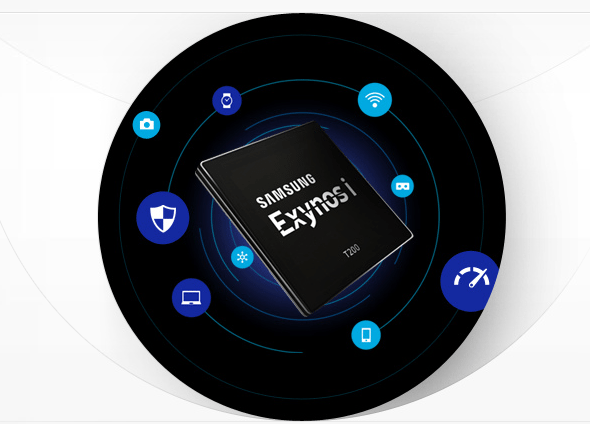Samsung’s plans to capitalize on the exploding internet of things include a narrowband IoT radio, LoRaWAN technology base stations, an IoT operating system, an $8 billion purchase of Harman Kardan to support connected-car technologies, and now a chipset custom-built for the IoT. Samsung’s Exynos i T200 combines Wi-Fi connectivity with two processors: a Cortex-R4 processor and an additional Cortex-M0+ processor.
Samsung built security into the silicon with its IoT chipset by creating a security sub-system, a separate hardware block designated for security. Many engineers consider security that is embedded into silicon to be more reliable than security solutions implemented via software.
Samsung has built in a feature called physical unclonable functions, which it describes as on-chip intellectual property which generates a unique key for data encryption and device authentication. In IoT systems that use physical unclonable functions, a hacker should not be able to use one key to access a large amount of data or compromise a large number of devices.
The Exynos i T200 supports Microsoft Azure as well as IoTivity, an IoT protocol standard from the Open Connectivity Foundation which is meant to enable seamless interoperability between IoT devices.
Samsung said the integration of two separate processors means that different tasks can be assigned to different microcontoller units for independent processing. This is particularly applicable to IoT use cases, where one chipset might need to handle system management as well as input and output from a sensor. Often developers need to add a separate microcontroller in order to support the workload, which is why Samsung is including the second one in its solution.

